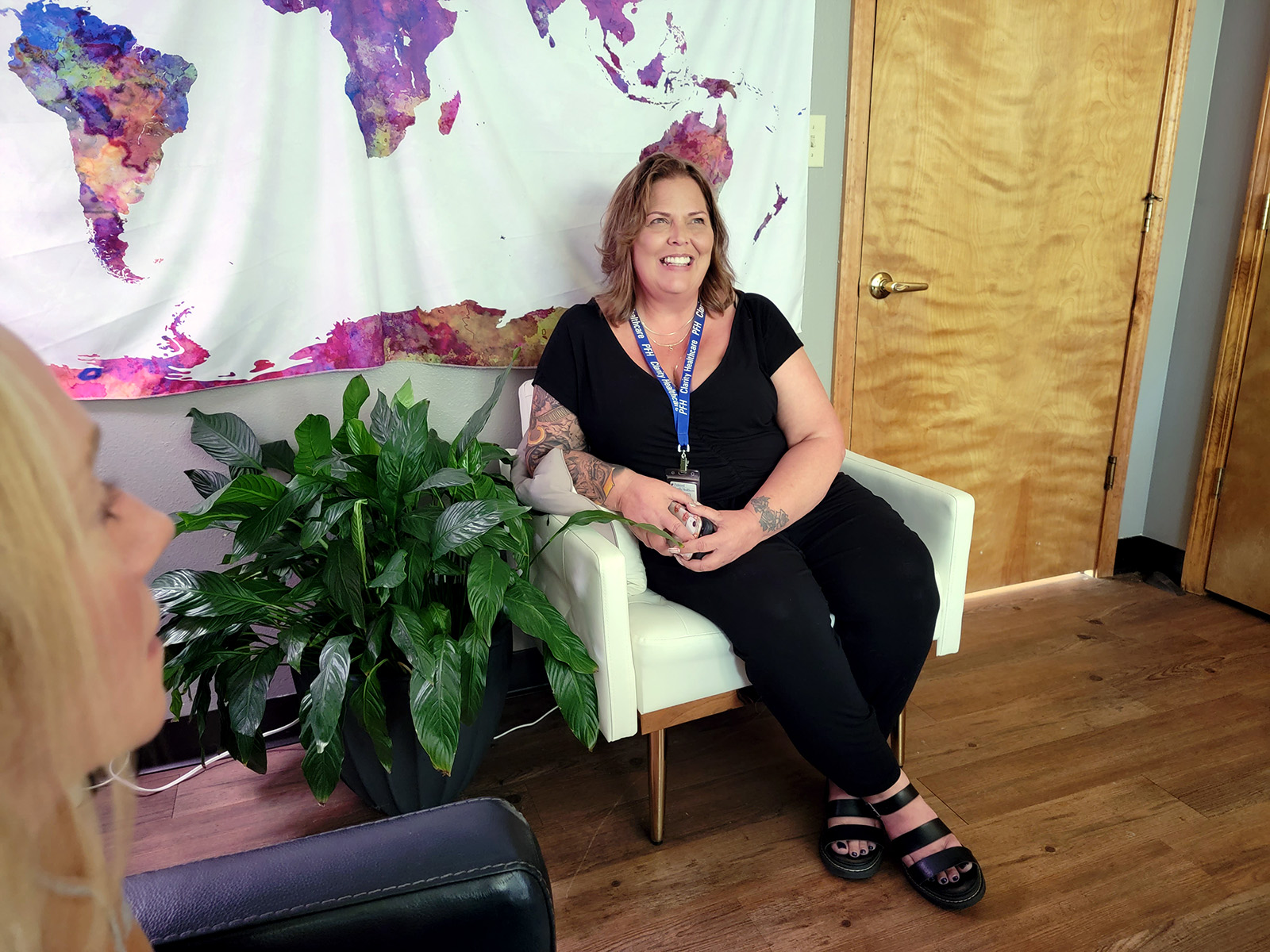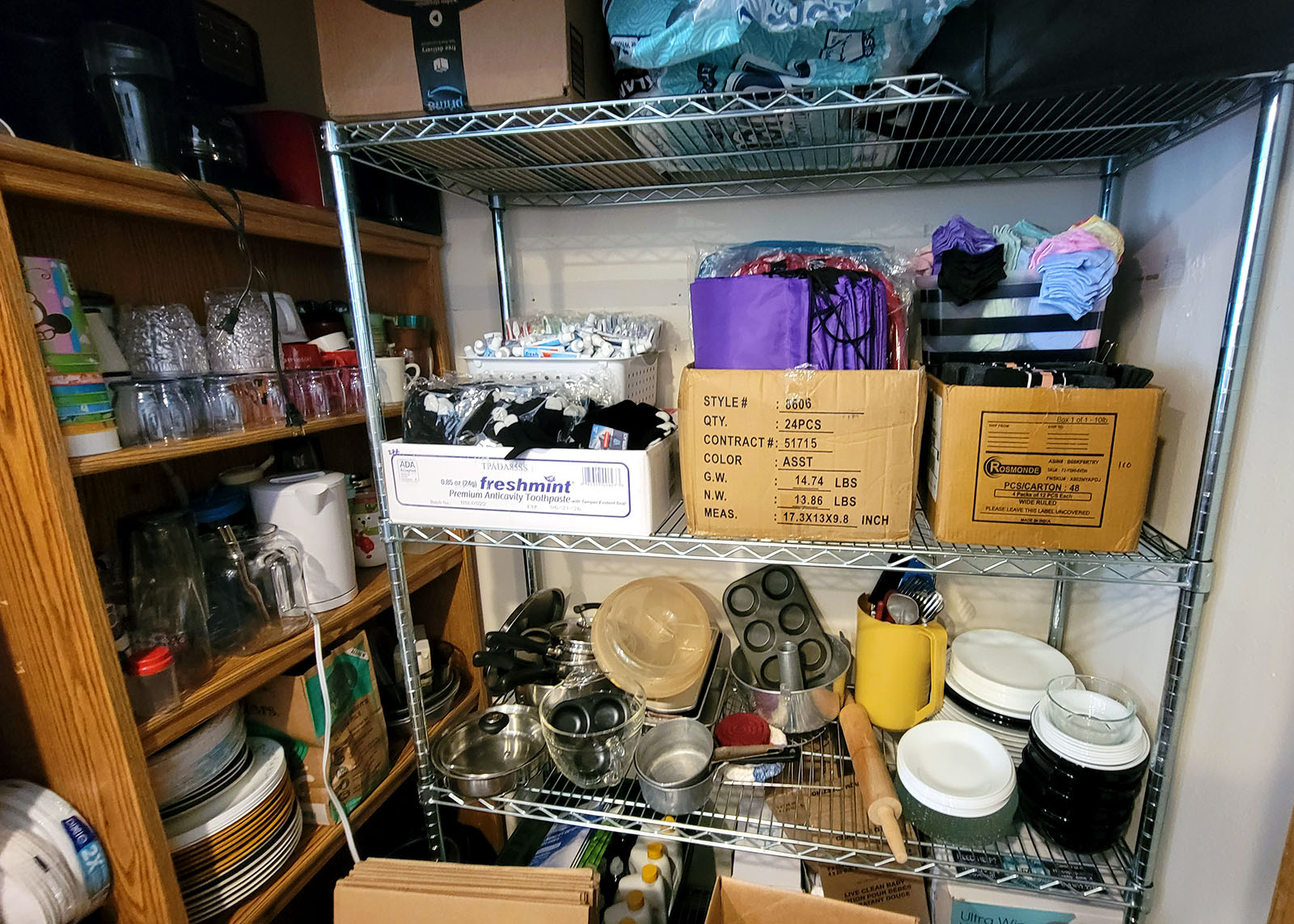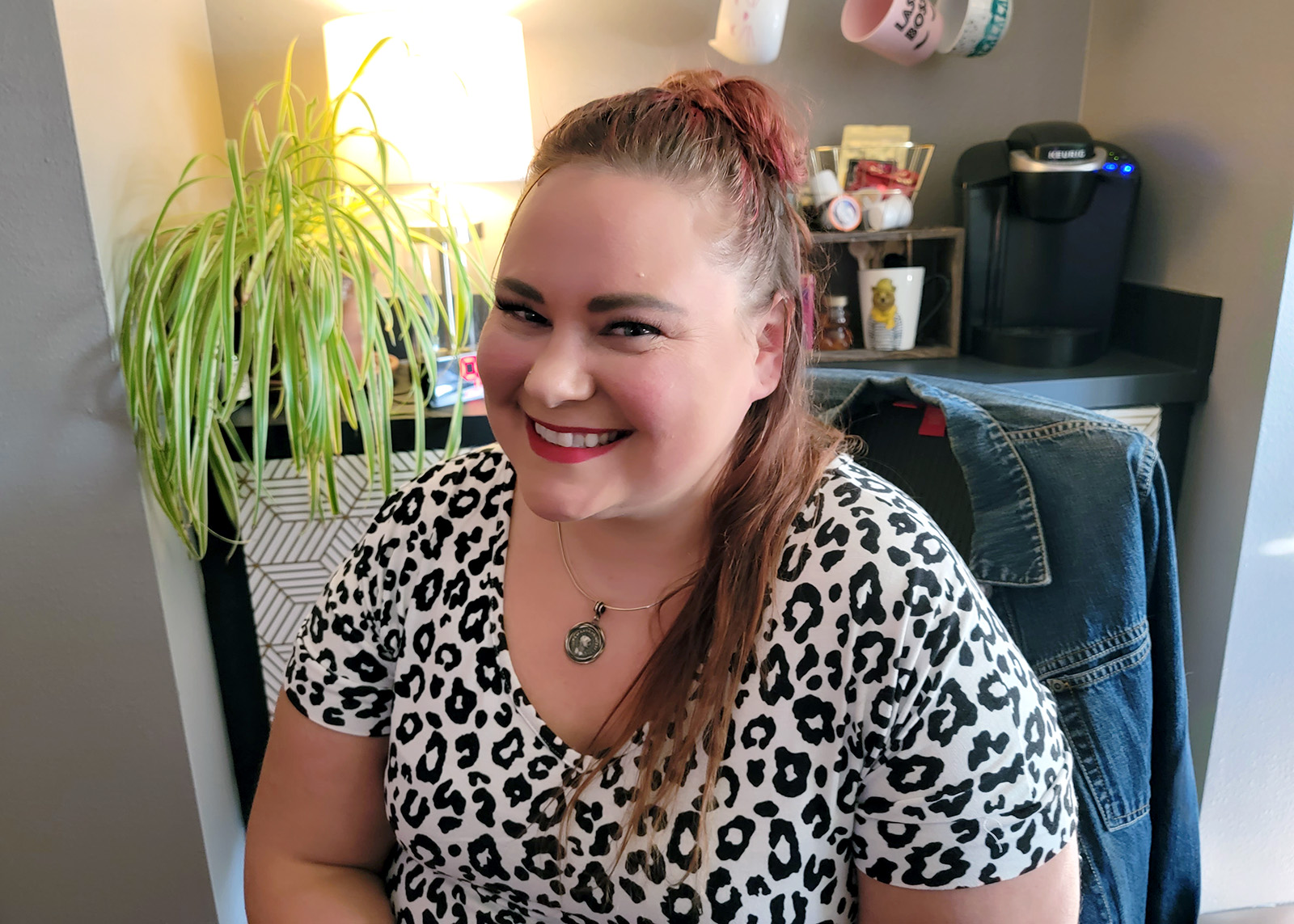Brittney Brewer spent nearly a decade of her young life battling substance use disorder and, at times, homelessness.
The Missouri Children’s Division got involved in 2021. Brewer's parents took custody of her two young boys. Her kids’ caseworker urged Brewer to get into treatment. Not long after, she found herself pregnant again and living with her fiancé in a homeless camp behind a Walmart store in northwest Springfield.
With the hope of being able to bring that baby home from the hospital and someday reuniting with her two sons, Brewer reached out to Preferred Family Healthcare (PFH) for help.
PFH offers inpatient and outpatient rehabilitation programs for substance use disorder, as well as mental and behavioral health services.
“I was just done with struggling and living day to day,” Brewer said. “I wanted to get sober.”
That was more than a year ago. Brewer has been clean since Sept. 5, 2022. She completed PFH’s inpatient program and will soon graduate from outpatient treatment.
Brewer has a bright-eyed, healthy 10-month-old girl named Morgan.

Oct. 18, Brewer signed the lease and got the keys to a townhouse in Springfield — thanks to help Brewer received from the PFH’s CARES Grant program.
“I'm excited and nervous. I've lived with my grandparents basically all my life,” Brewer said, emotional and looking around the empty, clean apartment. “I appreciate you guys sharing this moment with us. This is big.”
Morgan sat on the floor, laughing and clapping.
Brewer's fiancé and Morgan's dad, William Simpson, bent down to pat his daughter.
“We are home, baby girl,” he said. “This is home.”
About the PFH CARES Grant

(Photo by Jym Wilson)
The CARES Grant (short for Community Assistance Reintegration Efforts—Grants for the Benefits of Homeless Individuals) is a five-year federal grant program from the Substance Abuse and Mental Health Services Administration.
Preferred Family Healthcare has been a recipient of the CARES Grant for one year now. In fiscal year 2023, PFH received nearly $400,000 for the program.
To date, the CARES Grant assisted 45 women in and around Springfield who have struggled with homelessness and substance use disorder into stable housing.
Based on the program’s success so far, Stacey Velez, housing specialist for the CARES Grant program, and Jessie Robeson, program director, are confident they can surpass their goal of getting 250 clients stably housed over the five-year grant period.
As she does with all of her clients, Velez was there Wednesday when Brewer signed her lease and saw the apartment for the first time.
“This is absolutely the best part of my job,” Velez said, following Brewer and Simpson up the stairs and into the bedrooms. “I'll stay in their lives. I'll do home visits. I'll work with them on how to be good tenants and how to communicate with their landlord.”
Trish Chastain, a community support specialist with PFH, also tagged along. Chastain has worked with Brewer for several months.
“She has just done so well,” Chastain said, watching her client tour the apartment. “Everyone has the opportunity when they run into hardship to just give up. And she did not.”
In Brewer's case, the CARES Grant paid for the first three months rent and the deposit.
How does the program work?
Clients can qualify if they live in Greene, Barry, Christian, Lawrence, Stone or Taney counties, and are in a treatment program for substance use disorder. The treatment program does not have to be PFH’s.
The goal is to get clients into stable housing within 90 days. “Stable housing” can hold different meanings for different clients, Velez said.

“We didn’t want to set parameters for our clients, especially coming from homelessness,” Velez explained. “Stable doesn’t always look like owning a house. For our clients, we give them the flexibility of a sober living place. And if that is what they consider stable, then we allow that to be their stable housing.”
The grant can help with rental application fees, security deposits, utility deposits, help with rent or with fees to get into a sober living home.
“We’ll pay some fees to get them in until they can start working and paying those fees on their own,” Velez said. “Anything we can do to try and help them to be successful. We get them bus passes. We can help them with gas cards. We can help them get birth certificates, drivers licenses, Social Security cards. The Social Security card doesn’t cost any money, but we can help them to obtain the other documents so that they get go get that. I feel like our funding can go quite a ways. There’s only a few things that we’re not allowed to use the money on.”
The stigma of addiction impacts housing

Brewer got sober more than a year ago with Preferred Family Healthcare's treatment program. She recently got help getting an apartment through their CARES Grant program, which helps women who are in treatment for substance use disorder and need stable housing.
(Photo by Jym Wilson)
Landlords are often reluctant to rent to someone who’s been homeless, battled substance use disorder and possibly has a criminal record, so Velez said she is continually working to build relationships with landlords and educate them about the CARES Grant.
“Generally, our clients do come with some very heavy barriers to housing,” Velez said. “It’s a lot of advocating on their behalf. It’s a lot about educating landlords about our program and letting them know that we stay connected with the clients and that we’re there to assist them in any way.
“We teach the clients about being good tenants. We teach them about proper, responsible utility usage,” she continued. “We teach them how to communicate well with their landlords, and the landlord always has access to me anytime. So if there is an issue, I can address it right away with the client.”
Clients work with PFH’s employment specialist to help them find jobs, maintain employment and learn how to budget.
They also have a peer specialist — someone who has been successful in recovery from substance use disorder and is trained to help others experiencing similar situations — who helps them adjust to sober living.
When a client gets their own place, Velez works to find them donated furniture and household items. Her office closet is stocked with kitchen supplies, cleaning supplies and enough food items to stock a kitchen.

Housing is often key to reunification
Robeson, who’s been with PFH for 15 years, provides one-on-one counseling for clients in the CARES Grant program.
From Robeson’s perspective, one of the most rewarding and important aspects of the CARES Grant is that assisting these women into stable housing can be key in them being reunified with their children who’ve been placed in foster care due to their moms’ substance use disorder and/or their homelessness.

“A lot of them do have children in custody right now,” Robeson said. “We’re helping them work towards that goal.
“We’re puzzle people, because we have to figure out how it all works together for our clients,” Robeson said. “And not everybody is the same. So we’re figuring out how employment and treatment and if they have Children’s Division involved — how all of those things can fit together. And then there’s always an adjustment period of getting their kids back and readjusting to being a full-time parent.”
‘Don’t give up’
When Brewer first sat down with a reporter from the Hauxeda, she said she was a little nervous, but hopes sharing her story will help others.
“I know that there’s addicts in Springfield that have no hope, and I was there,” Brewer said, adding her message to them is, “Don’t give up.”
“When you’re in addiction, you feel like you’re alone,” she said. “But when you come here (PFH) you find out real quick that there are so many people that share the same backstory as you, the same addiction, the same reality. And it’s amazing to bond and watch, not only them grow as a person, but your friendship grow.”

(Photo by Jym Wilson)
She and Simpson, who is also formerly homeless and has been in recovery from substance misuse for over a year, both have jobs now. They are expecting another baby girl in February.
Brewer has regular visits with her two older children and is working with the Missouri Children’s Division to be reunified with them. A key component of the reunification plan is Brewer getting stable housing for the kids to come home to.
“I’m very excited,” Brewer said. “The next step I need to potentially get my boys back is having my own place.”
Brewer said she is working to repair relationships with her family members and regaining their trust.
When she graduated from the inpatient program, her grandfather gave her a key to her grandparents’ house again — something that they’d taken away from her when Brewer was active in her addiction.
“It was very emotional, even though it was something so little,” Brewer said. “If it was not for PFH, I don’t think I would be where I am today.
“The sober life is way better,” Brewer said. “I’ve never in a million years thought I would be where I am now. And I'm truly amazed with the sobriety and all the people that I’ve met here.”
And if it weren’t for the CARES Grant, Brewer said she doesn’t think she and her fiancé would be able to find housing.
“Even though (Simpson) works as much as he does, the deposits and everything are outrageous,” she said. “I am so blessed to be part of the CARES Grant.”


